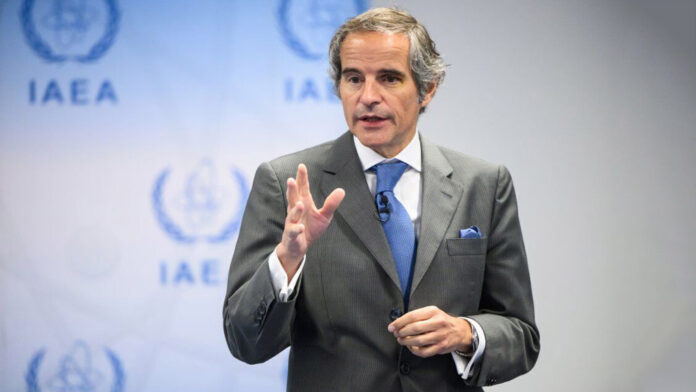The International Atomic Energy Agency (IAEA) has no evidence that Iran is developing nuclear weapons. Rafael Grossi, director general of the agency, said this at the ongoing climate conference in Baku, the capital of Azerbaijan, on Tuesday. This information is known from the report of Iran's state-controlled news agency Irna.
On the sidelines of COP-29, the ongoing climate change summit in Baku, IAEA chief Grossi made it clear that he is hopeful of resolving “alleged security issues” with Iranian officials during his visit to Tehran.
“This gap, this lack of trust—points to a future where (Iran's) nuclear facilities could become targets (of attack),” the IAEA said. We can't let that happen. We have to solve this problem.'
Asked whether the IAEA was concerned about Iran developing nuclear weapons, Rafael Grossi clarified, “The IAEA has no evidence to support this claim.” Earlier, in an interview given to the US broadcaster CNN, Grassi said that the purpose of the visit to Iran is to find a diplomatic solution to the remaining issues on the issue of the country's nuclear program.
Speaking about the future Joint Comprehensive Plan of Action (JCPOA), Rafael Grossi said, 'It's not a secret. The new government has been looking for a solution since coming to power. During his visit to Iran, Grassi will meet with Iran's president, foreign minister and head of Iran's nuclear energy agency.
After a meeting with the IAEA chief in Vienna two weeks ago, Iran's Deputy Minister of Law and International Affairs, Kazem Gharimabadi, announced that Grossi's visit was a continuation of the ongoing communication between Iran and the organization and in light of the joint statement of the two sides on March 4, 2023, the rest of the security issues were from a professional point of view and biased. Part of the steps taken towards a solution without
Iran gradually withdrew from its commitments after the United States, Britain, France and Germany failed to implement a nuclear deal under the 2015 Joint Comprehensive Plan of Action. Earlier, Western countries presented Iran's nuclear program as a threat under Chapter VII of the UN Charter and sought to address it through military action and sanctions.
The International Atomic Energy Agency (IAEA) has verified Iran's compliance with the 2015 deal in several of its reports. But Iran also started reneging on its commitments after a year as then US President Donald Trump unilaterally pulled out of the deal and re-imposed economic sanctions.
Subsequently, in 2018, Iran activated the dispute settlement mechanism under the Joint Commission on the JCPOA agreement. Where the foreign ministers of the remaining member countries of the treaty participated in the meeting. As a result, the JCPOA members issued a statement making 11 pledges as compensation for the economic losses caused by the US's unilateral actions.
After taking office in January 2021, President Joe Biden, under the Democratic administration, condemned the unilateral actions of his predecessor, but he also continued the policy of 'maximum pressure' or 'maximum pressure' to put pressure on Iran. Trump is set to return to the White House in January 2025 after being re-elected in the recent election.
Iran has repeatedly said that if other countries, including the United States, comply with the terms of the JCPOA, the measures taken by Iran can be withdrawn.

